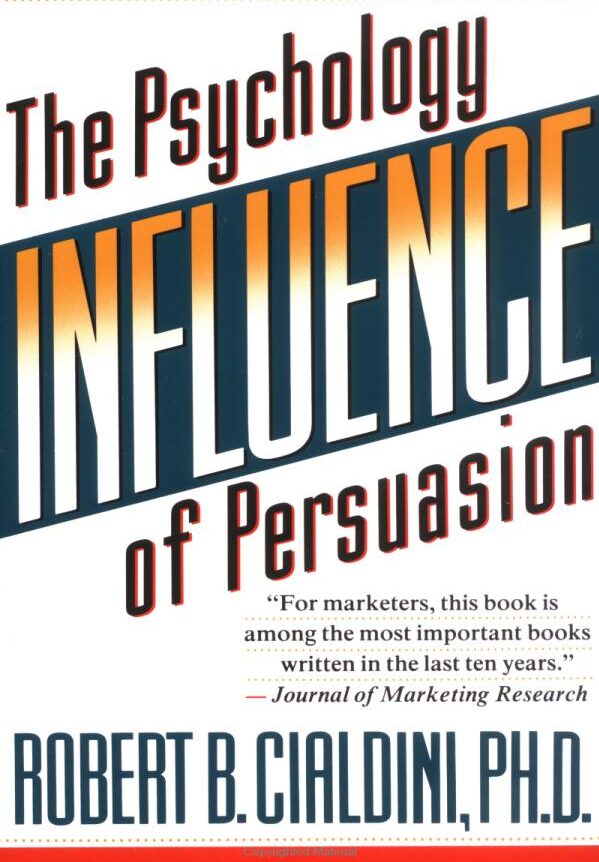Influence: The Psychology of Persuasion
by Robert Cialdini

In his book, Influence: The Psychology of Persuasion, Robert Cialdini explores the psychology of why people say “yes” to requests. He identifies six principles of persuasion, which he calls “weapons of influence”: reciprocity, commitment and consistency, social proof, authority, liking, and scarcity. Cialdini argues that these weapons of influence are often used without our knowledge or consent, and that we can use them to our own advantage if we are aware of them.
Reciprocity
Reciprocity is the principle that we should repay others in kind for what they have done for us. For example, if someone does us a favour, we feel obliged to return the favour. Cialdini cites research showing that waiters who give a mint with the bill get bigger tips, and that people are more likely to comply with a request if they have been given something first.
Commitment and Consistency
Commitment and consistency is the principle that we are more likely to honour our commitments if we have made them publicly. For example, we are more likely to vote if we have signed a pledge to do so. Cialdini argues that we can use this principle to persuade others by getting them to make a small commitment first, which they will then be more likely to honour.
Social Proof
Social proof is the principle that we are more likely to do something if we see others doing it. For example, we are more likely to buy a product if we see others buying it. Cialdini argues that we can use this principle to our advantage by providing social proof (such as testimonials) when we are trying to persuade someone.
Authority
Authority is the principle that we are more likely to comply with a request if it comes from someone with authority. For example, we are more likely to listen to a doctor’s advice than to a friend’s. Cialdini argues that we can use this principle to our advantage by appearing more credible when we are trying to persuade someone.
Liking
Liking is the principle that we are more likely to say “yes” to a request if we like the person who is making it. For example, we are more likely to buy a product from a salesperson who is likeable. Cialdini argues that we can use this principle to our advantage by making ourselves more likeable when we are trying to persuade someone.
Scarcity
Scarcity is the principle that we value things more if they are scarce. For example, we are more likely to buy a product if it is in limited supply. Cialdini argues that we can use this principle to our advantage by making our product seem more scarce than it really is.
Cialdini’s book is an interesting exploration of the psychology of persuasion. He provides many examples of how the principles of persuasion can be used to our advantage, if we are aware of them.
Mind - Most Recent
The Benefits of Reading: How to Make Time for Books in Your Busy Life
The Power of Positive Thinking
Unleash the Power of Marginal Gains: How Small Improvements Can Lead to Big Results
12 Life-Changing Books for a Year of Personal Development
9 Steps to Supercharge Your Productivity
The Ultimate Guide to Deep Work
The Seven Habits of Highly Effective People by Stephen Covey

0 Comments